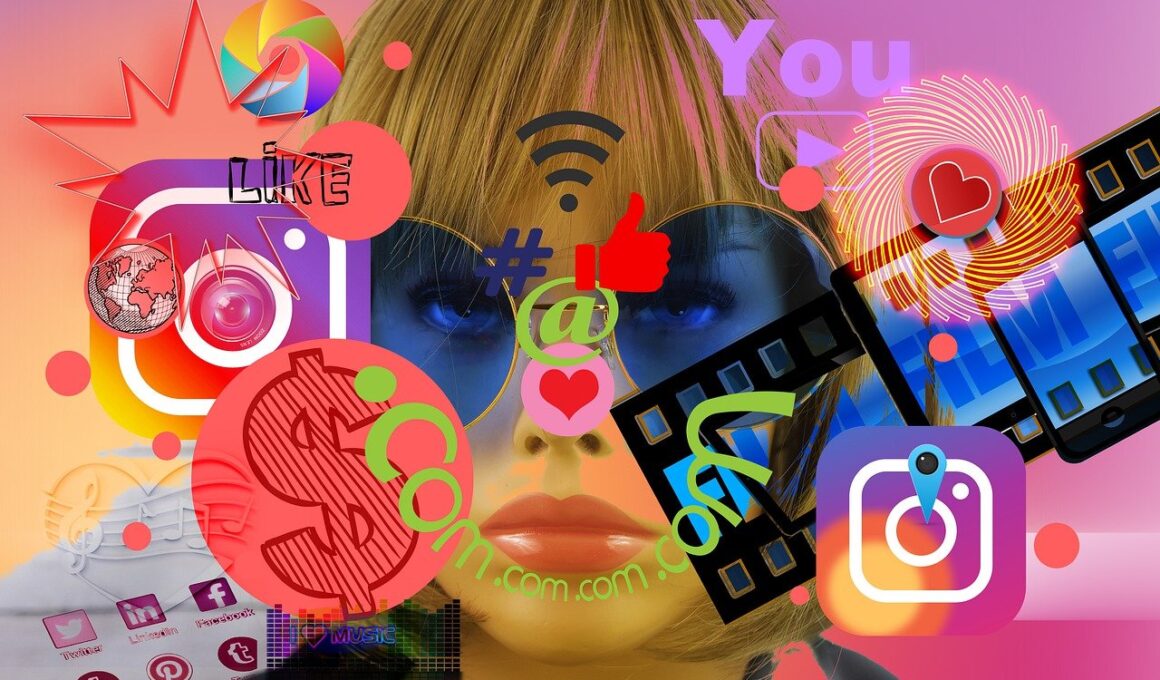Emerging Platforms for Influencer Marketing in Mobile App Promotion
Influencer marketing has become a crucial strategy for promoting mobile applications significantly. Various emerging platforms are revolutionizing how businesses connect with their target audiences. One notable platform is TikTok, which has exploded in popularity and offers unique opportunities for engaging marketing strategies. Brands are partnering with influencers to create entertaining short videos, tapping into the app’s virality. This method not only builds brand awareness but also drives direct downloads of the app. Another platform gaining traction is Instagram, where influencers can showcase apps through stories and live sessions. The visual content on this app enables users to see app functionality in action, enhancing their interest. Moreover, platforms like Pinterest are now facilitating app promotion as well. By creating visually stunning pins and guides, influencers can direct users toward downloading new and trending applications. Additionally, the release of new platforms, such as Clubhouse, offers opportunities for unique audio-based promotions. Influencers can discuss apps, providing insights and first-hand experiences. Thus, these emerging platforms contribute significantly to influencer marketing and mobile app promotions.
The Impact of User-Generated Content
Another critical aspect of influencer marketing for mobile apps is user-generated content (UGC). This type of content is created by users rather than the brand itself, fostering authenticity and trust. When influencers encourage their followers to share experiences with a specific app, it amplifies exposure and engagement significantly. UGC can take various forms, including videos, reviews, and testimonials that showcase the app’s features and benefits. By leveraging UGC, brands enhance their credibility through real user experiences. This not only increases trust but also encourages other potential users to try the app. Platforms like Instagram and TikTok are particularly effective for UGC due to their shareable nature. Brands can run campaigns that encourage users to post their experiences, using a specific hashtag to track participation. Posting UGC often results in a viral effect, where more people become aware of the app due to relatable content. Furthermore, influencers can create challenges or contests where user-submitted content is featured, capturing greater attention. Therefore, brands that leverage UGC within their influencer marketing strategies can see significant benefits in mobile app promotions.
In terms of metrics, analyzing the success of influencer marketing campaigns for mobile apps has become more sophisticated. Brands now utilize analytics tools to assess engagement levels, app downloads, and overall return on investment. Calculating the effectiveness of campaigns helps identify which influencers are driving the most traffic and conversions. KPIs such as impressions, clicks, and user sign-ups provide clear insights into the campaign’s performance. Utilizing tracking links allows brands to monitor the source of app downloads directly linked to influencer posts. This targeted approach enables marketers to fine-tune their strategies based on performance data. However, understanding the audience demographics and choosing the right influencers for specific apps remains essential. Influencers should align with the app’s target market to ensure that their campaigns resonate effectively. Access to insights and analytics allows brands to make informed decisions when selecting influencers. As the landscape continues to evolve, brands need to stay updated on trends to maintain their competitive edge. Continuous adaptation will ensure success in leveraging influencer marketing for mobile app promotions.
The role of micro-influencers in mobile app marketing cannot be overlooked. These influencers, typically boasting smaller but highly engaged audiences, offer brands a cost-effective marketing avenue. Unlike mega-influencers, they often maintain direct connections with their followers, allowing for more tailored and relatable promotions. Collaborating with micro-influencers can provide a more authentic voice, which resonates well with users. Notably, mobile app developers can find a niche market by selecting micro-influencers who fit specific categories. For instance, a fitness app could partner with health enthusiasts who actively engage with their communities. By doing so, the app gains exposure to targeted audiences genuinely interested in their content. Encouraging micro-influencers to share product reviews and tutorials leads to organic growth, further enhancing app visibility. As a result, the conversion rates from their campaigns are often higher than those of larger influencers. Furthermore, engagement follows a community-based approach, fostering relationships between users and brands. Thus, micro-influencers provide brands with an effective strategy to engage specific audiences through influencer marketing in mobile app promotion.
Leveraging Social Commerce for App Promotions
Social commerce has emerged as a significant trend linking influencer marketing and app promotion. Brands leverage platforms such as Instagram and Facebook while allowing users to shop directly through posts. This seamless integration facilitates app downloads and purchases by simplifying the user journey. Influencers play a vital role in social commerce byacting as trusted voices that guide purchase decisions. By collaborating with influencers to create shoppable posts, brands can enhance their app’s visibility substantially. When influencers share links to download apps or promote in-app purchases, they encourage their audience to act quickly. Besides that, the urgency can increase conversions significantly. Furthermore, integrating augmented reality features can enhance social commerce experiences for users. Influencers promoting app features through AR can provide exciting and dynamic interactions, captivating users further. Social platforms also increasingly introduce offerings that cater to e-commerce needs, creating even more opportunities for influencer collaborations. As social commerce continues to evolve, brands must adopt strategies to take advantage of these integrations effectively. Embracing social commerce allows brands to create innovative marketing tactics for mobile app promotion.
As influencer marketing evolves, emerging technologies are shaping its future, particularly in mobile app promotion. Artificial Intelligence (AI) is fundamentally transforming how brands identify and engage influencers. AI-driven platforms analyze audience engagement, content reach, and social media behavior effectively. These insights help brands to select influencers who align with their marketing objectives and target audience. Moreover, using machine learning algorithms can predict trends, optimizing campaign strategies before executing them. Predictive analytics tools enable marketers to forecast the performance of their influencer collaborations by analyzing past data. Consequently, these advancements also offer efficiency in campaign management. Another technology, virtual reality (VR), is opening doors for immersive app experiences. By collaborating with influencers, brands can create VR experiences that showcase their app’s capabilities. This method not only strengthens the app’s branding but also creates memorable interactions that users are more likely to share. Thus, emerging technologies collectively enhance influencer marketing for mobile app promotion, improving targeting efficiency and fostering innovative approaches in customer engagement.
Cultivating Long-Term Relationships with Influencers
Brands should focus on cultivating long-term relationships with influencers as campaigns increase effectiveness. Building partnerships creates stability and ensures consistent messaging across multiple promotions. Instead of one-off collaborations, brands can partner with influencers on an ongoing basis to maintain authenticity. Furthermore, these relationships encourage influencers to invest more into the brand, appealing more to their audience. Instead of relying solely on promotional content, influencers can share personal stories and experiences with the app, making their endorsements feel more genuine. Brands can also provide influencers with exclusive access to updates or new features, strengthening these relationships. By fostering a sense of community, brands encourage continuous engagement, paving the way for more successful campaigns. This strategy allows brands to capture feedback and adapt based on influencer insights. Additionally, maintaining an element of fun in collaborations can yield positive outcomes. Creative brainstorming sessions and planning events or launches can establish a collaborative atmosphere, adding excitement to the partnership. Thus, developing lasting connections with influencers proves beneficial for mobile app promotions while enhancing the brand’s overall reputation.
Conclusion
In conclusion, the landscape of influencer marketing for mobile app promotion is rapidly changing. Brands must continuously adapt to emerging platforms, technologies, and trends to succeed in this competitive environment. Utilizing TikTok, Instagram, Pinterest, and others allows brands to engage audiences effectively. Simultaneously, embracing user-generated content, leveraging micro-influencers, and participating in social commerce create opportunities for greater visibility and impact. Analytics play a vital role in understanding campaign performance, enabling brands to make informed decisions. Long-term relationships with influencers establish authenticity while providing sustained engagement. Finally, cultivating innovation through technologies like AI and VR can enhance user experiences. As brands navigate this dynamic landscape, they must remain flexible and responsive to the evolving strategies of influencer marketing. Maintaining relevance in users’ minds is essential for driving app downloads and growth. To thrive, brands should embrace these strategies and leverage emerging opportunities for influencer marketing. Successfully implementing these tactics will ensure not only app visibility but also build valuable connections between users and brands.





